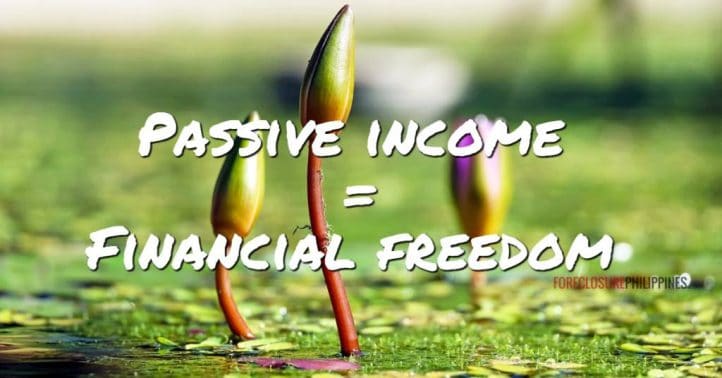
Welcome to the third part of this series on the 3 types of income one can get through real estate investing, and this time, we will cover passive income.
This was supposed to be the third and last part which is about passive income, but it has turned out to be a huge article in itself (more than 4000 words) , which is why I will have to split it in two. This will be the first half .
Before you begin reading this article, I recommend you review the first two parts about portfolio income and earned income:
How to get portfolio income through real estate investing
Earned income through real estate investing
We now continue with passive income…
What is passive income?
Wikipedia defines passive income as income from “trade or business activities in which you do not materially participate.” Furthermore, the IRS website defines that “in general, all rental activities are passive activities, even if you do materially participate. You materially participate in an activity if you are involved in the operation of the activity on a regular, continuous, and substantial basis.” These may sound complicated so I would rather stick to the simpler definition that passive income is income that comes in consistently without having to do much physical work.
Examples of passive income are dividends from paper assets like stocks, bonds, and mutual funds, interest income from certificates of deposits, mortgages, income from advertisements on the internet, income from a business where the business owner need not work in the business, residual income from royalties from the sale or use of intellectual property and multilevel marketing activities, and of course, rental income from the leasing of real estate.
Passive income from real estate investing
In real estate, you get passive income by investing for cashflow. This is when you focus on buying properties whose rental income exceeds all expenses, including taxes, and any payments for loans, if any. Basically, the monthly cashflow would be the monthly rental income less monthly expenses less the monthly amortization you pay to the bank if the property was bought through financing.
Using our previous example again, where I bought a foreclosed property for Php1Million by putting down 20% downpayment or Php200,000, with a remaining loan principal balance of 80% or Php800,000, let’s assume the balance is payable in 20 years at 8.5% annual interest rate(this is the current rate for Pag-IBIG for a loan of Php800,000).
This results in a monthly amortization of Php6,942.58/month( You can verify this by using our mortgage calculator)
For this example, lets also assume that my monthly expenses as the landlord are monthly homeowners association or condo dues, maintenance, property management, real property taxes(I just divide the annual real property tax by 12 to arrive at monthly figures), maintenance reserves, etc. all add up to about Php4,000/month and the property can be rented out at Php15,000 per month.
My monthly cashflow for the example above would then be as follows:
Monthly Cashflow = Monthly Rent – Monthly Expenses – Monthly amortization
=Php15,000 – Php4,000 – Php6,942.58
=Php4,057.42/month
Do take note that the cashflow figure we arrived at above is before taxes, more on the applicable taxes later.
Examples of rental income
Rental income can come from the leasing of houses, lots, house and lots, townhouses, condominiums, parking slots, apartments, buildings, hotels, office-space, space used for cell-sites, billboards, or just about any residential or commercial space. Did I forget any?
One can even earn passive income by having a real estate business, more on this later.
Advantages of passive income from real estate
Least taxed – Passive income in the form of rentals is the least taxed among the types of income one can get through real estate investing. Remember, income in the form of capital gains are taxed at a rate of 6%, while earned income is taxed up to a high of 32% in the form of income tax.
For rental income, the taxes range from a low of 3% percentage tax to a high of 12% VAT. Please take note that percentage tax and VAT are mutually exclusive, you pay one or the other, depending on which is applicable.
The lease of residential units where the monthly rental per unit exceeds Ten Thousand Pesos (P10,000.00) but the aggregate of such rentals during the year do not exceed One Million Five Hundred Pesos (P1,500,000.00) are exempt from VAT, and shall be subjected to three percent (3%) percentage tax.
It follows that the 12% VAT applies to the lease of other properties not covered by the statement above. Please refer to this article: Save Money On Taxes: Exemptions From VAT On The Sale And Lease Of Real Estate for more information and a sample computation.
Of course, income tax is still applicable. The good news is you can still lower your taxable income through allowable deductions, thereby lessening the payable income tax. My wife will create a more detailed article about this in the future. I will force her to do this if needed. 🙂
Income comes in without the need to sell the property – An obvious advantage with passive income through rentals is you have income coming even if you don’t sell the property. If you don’t have to sell the property, you obviously do not need to pay any of the major taxes like Capital Gains Tax (CGT) for capital assets or Creditable Withholding Tax (CWT) for ordinary assets, whichever is applicable.
Less affected by a recession or financial crisis (at least for residential properties) – If you invest for passive income, I believe that you are less affected when a recession or financial crisis happens, unlike flippers who might get devastated because they will no longer be able to sell their properties at their desired selling prices as property values plummet.
Even if flippers rented out the properties they could not sell, most may still end up with negative cashflow because the cashflow was not considered at the very beginning. It is easier to find a property that can be flipped for a profit but has negative cashflow, than a property that has both positive cashflow, and can be flipped for a profit. If that were the case however, I would think twice before I sell a passive income generating property as it is like a goose that lays golden eggs.
Without the need to sell a property, investing for cashflow is simply less vulnerable and less risky, in my opinion.
In addition, I believe that demand for residential properties that are for rent would still be pretty high, as people still need a place to live in, even if there was a recession or financial crisis. It would be logical to conclude that the people who would forego buying their own homes would just rent. On the other hand, commercial properties that are for rent would face less demand in times of a recession or financial crisis and would most probably be greatly affected.
Provides a consistent stream of income – Passive income in the form of rentals of real estate provides a reliable and consistent income stream that can really replace a person’s earned income that comes from having a job.
Money works for you – We often hear about the sayings “instead of working hard, we should work smart” and “instead of working hard for money, money should work for you” and passive income from real estate fits the bill. By finding a good rental property, the work is front-loaded, and the rest is just maintenance, and yet the money just flows into your pocket. Now that’s working smart!
You get to enjoy the fruits of property ownership – As you remain as the owner of the property, you also get to enjoy the fruits of ownership like gaining equity as time passes where part of your rental income is paying off your loan, if any, and you also have the benefit of any future appreciation of the property, if you do decide to sell or refinance the property down the road.
The disadvantages of investing for cashflow
Smaller income as compared to capital gains – The example above illustrates that the passive income we can get from a rental property looks small compared to the capital gains that we can get through flipping. Php4,057.41/month versus Php100,000/property(assuming you can really flip at least 1 property per month with a net profit of Php100,000). However, I still prefer rental income because in the long run it will help you get out of the rat race, more on this later.
Furthermore, you can have bigger passive income by focusing on properties that command higher rental rates, decreasing expenses through better and more efficient property management and maintenance, increasing the loan payment term to lower the monthly amortizations, etc. You can even go for a rent-to-own agreement where the option to own the property justifies higher monthly payments, resulting in bigger positive cashflow.
Requires property management – Property management is not really a problem if you have 1 to 4 rental properties. Beyond that, property management would probably feel like you you are back in the rat race , another 9 to 5 existence where the only difference is you own your job. This is just my opinion. Again, you can eliminate this by going for a rent-to-own scheme as the tenant-buyer will the one to manage the property as the property owner.
It is harder to find properties that can generate positive cashflow – Like what I mentioned earlier, It is easier to find a property that can be flipped for a profit but has negative cashflow, than a property that has positive cashflow. If you are consistently doing the numbers with the free foreclosed listings that you get from foreclosurephilippines.com, you would know what I am talking about. If you are not doing the numbers, what are you waiting for, Christmas?! Knowledge gained left unused is knowledge wasted!
Rent control – The coverage of the Rent control act of 2009 include all residential units in the National Capital Region and other highly urbanized cities, with a monthly rent for each of which ranges from One peso (Php1.00) to Ten thousand pesos (Php10,000.00) and all residential units in all other areas, the total monthly rent for each of which ranges from One peso (Php1.00) to Five thousand pesos (P5,000.00).
One can avoid this by investing only in properties that command a rent higher than Php10,000, although this could mean VAT becomes applicable. Another option to avoid rent control is to use a rent-to-own agreement, although in effect you are already selling the property, even if you still get positive cashflow for the duration of the rent-to-own agreement.
You get all the expenses related to property ownership – Expenses like maintenance, cost for fire and acts of nature insurance, real property tax, property management, and other expenses that cannot be passed on to your tenants, remain to be your responsibility as the property owner, unless you enter into a rent-to-own agreement. Monthly dues, utilities, and other miscellaneous expenses can be passed on to the tenant.
You might encounter tenants from hell – Tenants from hell are probably the most dreaded thing that would-be landlords are afraid of. Yes, it happens to the best of us, it even happened to Larry Gamboa, which he shared during the recent Think Rich Pinoy Seminar. The only way to get around this is to pre-qualify your would-be tenants or tenant-buyers.
Things to remember about passive income from real estate investing
Each passive income generating property is like a goose that lays golden eggs – If you remember Aesop’s fable “The Goose That Laid the Golden Eggs”, the goose laid a golden egg consistently each and every day. A rental property is just like that as it lays “golden eggs” in the form of passive income every month.
Passive income generating real estate still needs maintenance and some work; you still need to take care of your “goose”
- You need to have property management which can be done by you if you have 4 rental properties or less, or you can just outsource it to other competent people who can do it better than you if you already have more than 4 properties. Take note that the 4 properties is just my own estimate. You may even start outsourcing property management with your first rental property, as this will make it truly passive, and avoid those things that go with property management that might turn you off, like fixing toilets at 3am.
- If you don’t take care of your property and your tenants, either the golden eggs will become smaller and smaller as expenses begin to pile up because of deferred maintenance that eventually catches up with you, or the eggs will just stop when the goose dies as you lose your tenants or when your property becomes unlivable, whichever comes first.
Don’t sell the goose – If you sell your property that lays “golden eggs”, then you will obviously have no more eggs, just like when the farmer decided to kill the goose to get all the golden eggs inside of it. But unlike the farmer who found no golden eggs inside the goose when he killed it, you might end up with a big golden egg in the form of capital gains if you sold the property, but that would be the last golden egg, and you will have to find another goose. It is always tempting to make a lot of money quickly. Don’t be too greedy!
How to turn earned income to passive income – There are actually ways to convert earned income into passive income. Here are a few of my ideas:
A. Treat real estate investing as a business – The key is to set it up like a business where you are the business owner who works on the business, and not in the business. You need to systematize your real estate business and delegate as much as possible, among a number of things, that would help make a business like this succeed, and this will turn you into a true business owner, not just someone who owns your job.
It would be like setting up your real estate business to function like it was a franchise of McDonald’s or Jollibee, where the least skilled can do most of the work, which lets you, the business owner, work on the business. Some aspects can even be outsourced like internet marketing for example, which can go for as little as USD2.00/hour, right here in the Philippines, as mentioned here by Yaro Starak. A working system used for such a real estate business can be easily replicated and can even be turned into a turnkey operation like a franchise, as described in the book “The E-myth revisited” by Michael Gerber. I believe this is also Larry Gamboa’s goal when he started his Think Rich Pinoy Franchise.
B. Setup a passive “residual” income stream – Another way to turn earned income into passive “residual” income would be to set it up like a legitimate multi-level-marketing (MLM) company. For real estate brokerage, what if it was setup in such a way that real estate agents are assigned the bulk of the offline tasks and leg work? They do this for the licensed real estate broker they are registered with, who in turn earns a small override for each sale. Lets say the agent and the broker split the 6% commission(now referred to as professional fee as real estate brokers are now under the PRC with the RESA Law) with 4% for the agent and 2% for the broker. The agent will do a lot of legwork but this will justify the additional 2% they will earn, which results in twice the earnings of what they usually get. You as the broker earn the 2% passive “residual” income. Do you think this idea of mine would work?
Devote time and effort in finding properties that generate cashflow – If you just focus on flipping properties, it would still be like a 9 to 5 existence because you will always have to flip a property to have cash coming in. If you invest for cashflow however, those small income streams in the form of rental income will eventually become as big, if not even bigger, than the income flipping can generate, as the number of rental properties increase.
The only difference is, if you reach your passive income monthly goal, you have a choice of stopping and yet the monthly cashflow still comes in. If you only have earned income, even if through real estate, you won’t really be out of the rat race.
Coming up next: Financial freedom and how it can be achieved through passive income from real estate investing
Now that you have a general idea of what passive income is, along with its advantages and disadvantages, I will next share my thoughts on what financial freedom is from my own perspective, and what it would take to become financially free through real estate investing.
I will also try to answer questions and statements like “Can it really be done?”, “Where do I start?”, and “In reality if it was easy, everyone would be doing it…”
See you next week for the second half about passive income which would be the series finale on the 3 types of income one can get through real estate investing.
*Click here to read the final part of this series!
To our success and financial freedom!
Jay Castillo
Real Estate Investor
Real Estate Broker License #: 3194
Blog: https://www.foreclosurephilippines.com
Follow me in twitter:http://twitter.com/jay_castillo
Find us in Facebook:Foreclosure Philippines facebook page
Text by Jay Castillo and Cherry Castillo. Copyright © 2010 All rights reserved.
PS. Are you a new visitor? Click here NOW to start learning more about foreclosure investing in the Philippines
PPS. Don’t be the last to know, subscribe to e-mail alerts and get notified of new listings of bank foreclosed properties, public auction schedules, and real estate investing tips. Inbox getting full? Subscribe through my RSS Feed instead!


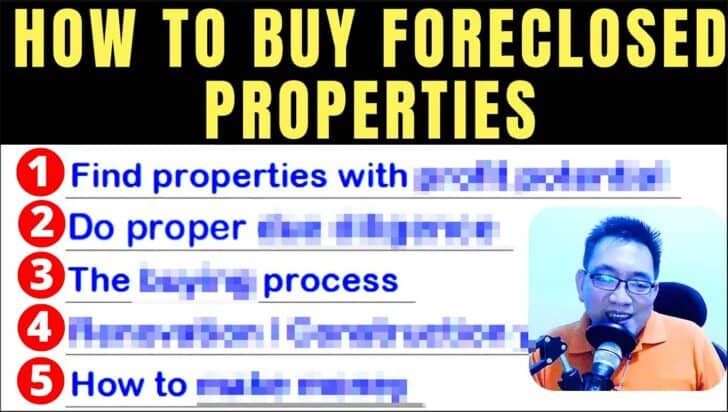
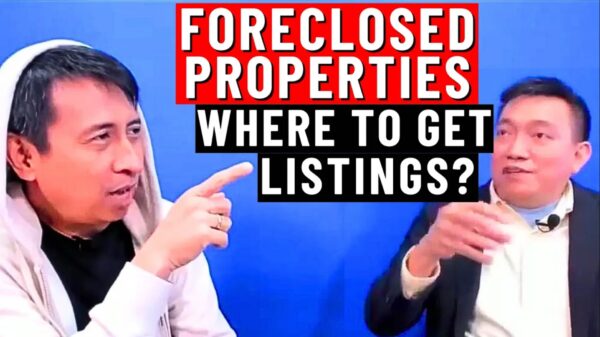

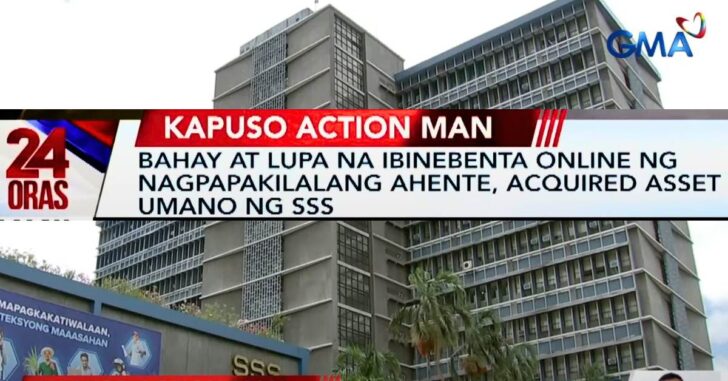
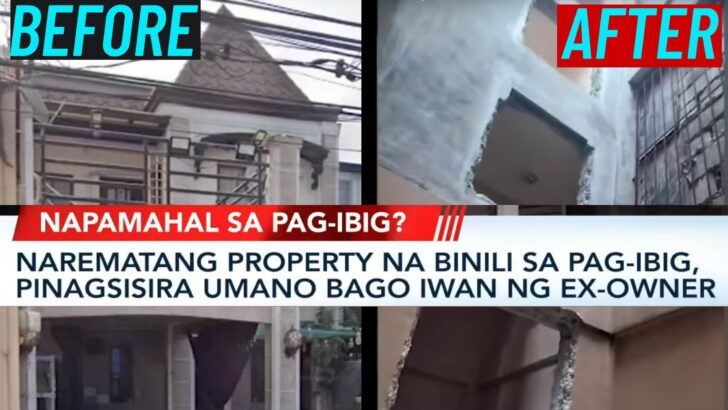
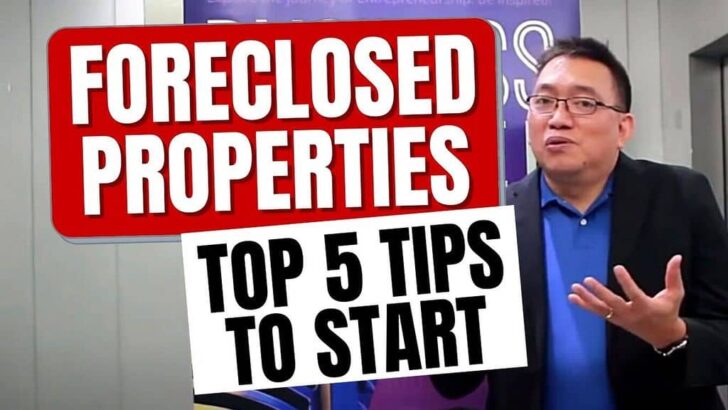
Do you plans of coming up with a book compilation of (most) your articles?
HI Jay,
You mentioned that you should own several properties with rental income to be financially free. Will the banks allow you to have five or more bank loans under your name?
I already have two existing loans under my name. One is a house and lot where I live and a condo unit which is being rented. I am looking to purchase a foreclosed house and lot, make some renovations, and find tenants to make profit. Will the bank still allow me to have another loan?
Thank you.
Hi Renelyn,
Thanks for the question. It would depend on your remaining net disposable income if the banks will still grant you another loan. I believe they have a way of finding out all your existing loans (even those from other banks), and from there they can get your net disposable income (gross income less loan obligations). If your gross income is big enough, then they should grant you another loan, or even more loans down the road.
Another option would be to buy from banks that offer financing through a contract-to-sell, which means it won’t depend on your credit-standing. Unionbank is one example.
Did I answer your question?
You should know when enough is enough and draw the line. Unless you can do this no amount of passive income will allow you to enjoy life
Hello Jay, I truly enjoy reading your blogs on real estate investing. Thanks for sharing all these ideas and information, such a generous man and may your kind multiply and spread. Myself, like you, is a huge believer of passive income. Just wanted to share my 2 cents regarding ownership of a rental property enrolled in a condotel system.
For some people who may not be aware of it, just like any other rental property, a unit enrolled in a condotel pool or system has it advantages and disadvantages. For starters, monthly income earn by a unit in a condotel pool is usually smaller than an income earn from a property that has a fixed monthly income. It also varies on a month to month basis depending on the time of the year, weather, market demand, and ongoing competition from other hotels in the area. That’s where it ends, at least in my opinion. The beauty of owning a condotel unit is that it is literally worry-free ownership of a passive income generating property. One doesn’t need to worry about finding renters, property maintenance, and paying taxes as that is being taken cared for by the hotel property operation team. Income is distributed equally among condotel pool members and varies depending on the size of your unit (a unit with a bigger area i.e. 1-br, earns more than say a studio, etc.). You are guaranteed a monthly rental income whether your unit was occupied or not during the period. How is that possible? Say you own a 2-br unit (I can only wish) in a pool of studios, 1-brs, 2-brs, 3brs, and let’s say during the month of July only units of studios and 1 brs were occupied due to low occupancy rate. At the end of the month you still get to partitioned in the rental income distribution simply because your unit is enrolled in the pool – how sweet. Your income might be smaller but it’s not as if your unit was trampled, err, I mean occupied say only zero days in a 31 day period. That literally means less wear and tear on your property that could translate in a longer property lifespan to generate an even longer passive income. And yes, if I haven’t already mention, zero month vacancy while you own your unit. This property might be a good option for people based overseas as they don’t have the time to look and pre-screen would be tenants. One last thing to add, since the income varies monthly, for me that is something I look forward to with a bit of excitement.
I have two rental properties at the moment, one with a fixed monthly income and the other enrolled in a condotel pool. I am in the process of selling the former (not happy with the monthly vacancies and property manager…ha-ha) and used the proceeds to finance a partial payment on another condotel property. Looking to upgrade and crossing my fingers while I wait…
Jay, I am still building my empire here and still working on my “magic number” to attain that financial freedom we’re all shooting for. Meanwhile, excuse me while I go back to the rat race and “work” for more money to finance future passive income properties. More power to you Jay, and best of luck to the other investors out there!
Likewise, thank you Robert Kiyosaki for opening my mind, and I haven’t stop educating myself financially.
I am very impressed with the way you deliver your ideas to become financially free using the real estate as a vehicle. I am a Filipino nurse and owner of various nursing blogs and website that shares a common dream with you guys, TO BE FINANCIALLY FREE!
Your article contributes so much to my “financial intelligence”, as Robert Kiyosaki call it (grin).
I will read all your articles because this year, I am starting to engage in real estate and in fact I just recently collaborated with two of my friends to buy a pre-sell townhouse located in Metro Manila.
Wish me luck, and I am very lucky to find “golden ideas” through your writings.
Hi Aries, thank you for the compliment! I’m so glad to see you are already in a journey towards financial freedom starting with financial intelligence. I wish you all the best on your new venture with your friends!
homaygassss!!!!got to get some rest,save ko na lang so i can get back later….very interesting topics.
Thanks a lot Ricardo!
Thank you so much 🙂
looking at getting into property development and passive income..
Very honest info and imagination on this page, can’t wait for the next article.
Thanks from the UK
G 🙂
Great helpful information, Thanks for this nice post, just subscribed your feed, hope you will update new post soon.keep it up.
Jay – have you ever had a property on negative cashflow? I cannot think of a good exit strategy for a family member, who purchased a property and is still amortizing it. He has paid over $ 800K and has 400K in balance, amortizing PhP 20K a month. Rental market is only at PhP 7K, the PhP 13,000 difference is something he cannot sustain each month. The property is in Binangonan, Rizal. How do you deal with negative cashflow? What could you suggest?
I wish he could turn this property to give him passive income, but, mistakes could be unlearned, if ever this purchase was a mistake.
Kudos to you! Am a fan!
Pingback: How earning passive income through real estate investing can lead to financial freedom
Pingback: Earned income through real estate investing
An inspiring article. Thanks for the insights into generating passive income from real estate investing. I started investing in 2002 when I bought a condo unit at pre-selling and then another one in 2005. By the time these units were completed and turned over to me in 2007, I’ve already completed payments on both properties through savings funded from unspent promotions, bonuses and travel allowances. Despite several promotions, I maintained my simple lifestyle while funneling most of the savings to settling monthly amortization payments. The two condo units are both generating rental income which I used to pay the monthly amortization of two townhouse units I bought in 2008 (old townhouse) and 2009 (new townhouse bought on preselling terms). I had one of these townhouse units renovated and the two are now also generating passive income. However, I’m not exactly following a positive net cashflow as some of the rental income is less than the monthly amortization. However overall, for the four rental properties (all in Metro Manila) combined, the net cashflow is positive.
Hi Thomas, congratulations! I can see that you are very financially literate and you practice delayed gratification, which is something you should be proud of! Yes, as long as the overall cashflow you get is positive, it is still okay. Thank you for sharing and I’m sure this will be an inspiration to others who want to go on the same path!
Pingback: How do you define being “rich”?
thanks for a very informative article.keep them coming….
You’re welcome Deb, thanks for dropping by!
I’ve been studying foreclosure business through your website. Looks like all the basics and even complicated issues of investing is here.. even the secrets. I’m blessed by your unselfish intention. Just want to ask if the business isn’t saturated yet ..i mean we know that bidders are too many and it’s difficult to hit good deals especially apartments, condos and townhouses…i understand the abundance of property listings in the banks but majority of foreclosed properties are mostly lots/lots with improvements which are not income generating as it can’t be for “rent-to-own” properties..
Just wondering…pls comment on this
Hi Marise, thanks for the kind words! As for the competition when it comes to investing in foreclosed properties, in my opinion there is still little very little. I can say that of the people I know that really bid on foreclosed properties, we are often the same familiar faces that attend the auctions.
And lately, they too have not been attending less frequently than before, they probably focus on other sources of bargain properties aside from auctions like those that are for negotiated sale, as well as those in pre-foreclosure, and also those from motivated sellers other than banks.
I would agree that majority of foreclosed properties have less than promising numbers, but the key is recognizing the minority that are hidden gems. In my opinion, the average of finding 1 good investment out of a hundred still applies.
Thanks for visiting!
Great, great article Jay! You are an inspiration to all of us dreaming of leaving the rat race and achieving financial freedom. You make a very good point on preferring rental income since it’s passive vs capital gains used by flippers since it would still require you to constantly sell a property to make money. I am looking forward to part 2 of this article. More power!
Hi Allan, thanks! Thank you nga pala for helping RYP, we are eternally grateful, I’m just sad I was not able to go with Ebb when he met with you. I look forward to meeting you at the money summit!
Pingback: Tweets that mention Passive income through real estate investing – the path to financial freedom (Part 1)
Hi jay,
I really enjoyed reading your write up. I believe God is talking to me thru you. Keep up the good work.
Hi Vic, sobra ka naman… hehe! I just want to share, much the same way that a lot of people also shared their knowledge to me. Cheers!
Hi Jay,
A very good share! Galing mo talaga mag paliwanag. Cheers!
Hi Ian, thanks!
Hi Jay
I was informed already about the details of the properties. I will call you as soon as i got it.
On our way to financial freedom!
Jun
Hi Jun, that’s great! See you soon!